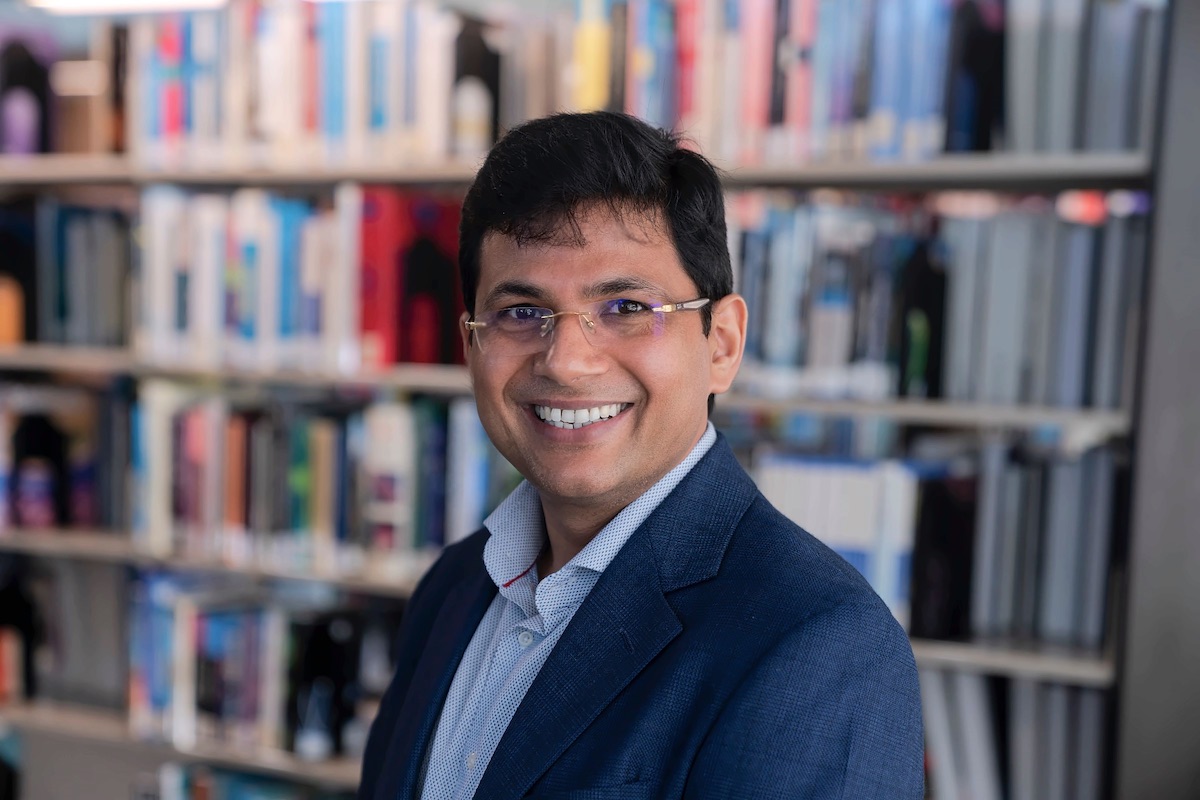Understanding thermophiles

KAUST Research Scientist Dr. Ram Karan recently received a Young Scientist Award at the 15th International Congress on Thermophiles in Japan for his research on extremozymes from Red Sea brine pools. Photo by Andrea Bachofen-Echt.
-By A. Ortega, KAUST News
Dr. Ram Karan, a research scientist from KAUST Professor Magnus Rueping's lab in the University's Catalysis Center, recently received a Young Scientist Award for his research at the 15th International Congress on Thermophiles. The event took place from September 2 to 6 in Fukuoka, Japan.
At the conference, Karan presented his work on "Halo-thermophilic brine pool extremozymes from Single Amplified Genomes," research carried out in collaboration with the KAUST Catalysis Center, the University's Red Sea Research Center and the KAUST Computational Bioscience Research Center.
Karan received the award as recognition for his ongoing innovative research on extremozymes isolated from Red Sea brine pools. Extremozymes are enzymes from microbial organisms that live in extreme environments, such as the high-salinity environment found in brine pools. These enzymes catalyze cellular reactions and allow life in hostile conditions.
The research Karan presented focuses on the identification, purification, bioengineering and biotechnological applications of microbial proteins from Red Sea brine pools.
"Due to their unusual biological properties, extremophile [microorganisms] are potentially valuable resources in the development of novel biotechnical processes," Karan explained. "Extremozymes produced by extremophiles show extraordinary salt and organic solvents tolerance, thermostability and cold adaptivity. These features [offer] new opportunities for the development [of catalysts of] chemical reactions under harsh conditions, which is ideal for industrial processes."
Dr. Ram Karan (center), a research scientist from the University's Catalysis Center, stands with colleagues Dominik Renn (left) and Dr. Sam Mathew (right) in the KAUST laboratory. Photo by Andrea Bachofen-Echt.
"[We are the first ones using] single-amplified genomes (SAGs) to produce [extremozyme] proteins. Using SAGs, we do not need to grow the cell in the laboratory," noted Karan. "We collected water samples from 2,000 meters below the Red Sea's surface. We expressed, purified and crystallized several enzymes [that present] valuable properties for biotechnology."
Harmful chemical catalysts can be replaced with customized enzymes that are non-hazardous, biodegradable, highly selective, cost-effective and produce less waste. Protein engineering of extremozymes will allow the production of heat-stable and solvent-tolerant biocatalysts that can be used in different industrial applications.
Karan stated he feels honored to bring the award home to KAUST.
"[The award] represents a recognition for the high quality of the research [in KAUST] and [the] support I have received, specifically from Prof. Magnus Rueping and colleagues in the lab," he said.
Related stories:
- Life in extreme conditions
- KAUST postdoctoral fellows win Young Scientist awards at Euroanalysis XX Conference
- KAUST Ph.D. student receives environmetrics best poster award
-
KAUST Ph.D. student wins Society for Industrial and Applied Mathematics award

